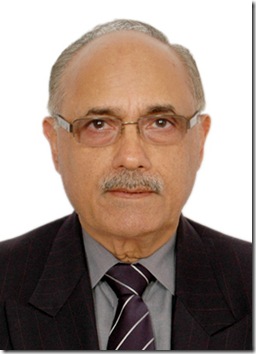
Bhasin & Co managing partner and Society of Indian Law Firms (SILF) president Lalit Bhasin has vowed to safeguard “freedom of expression” and “promote arts” as the newly-appointed chairman of the Film Certification Appellate Tribunal.
Bhasin (pictured) was appointed to chair the censorship appellate tribunal by the central government on Saturday (26 March).
“I am a champion for freedom of expression and promotion of arts, therefore, on mere technicalities I would not like to stand in the way of films being shown to masses,” said Bhasin. “But, one has to strike a balance. There should not be vulgarity on display, terror or scenes of blood bath and all that – curbs will have to be imposed on such scene.”
The act which governs film censorship in India is the Cinematograph Act of 1952 that in turn provides for the constitution of a central board for certification of all films publicly released in the country.
The Film Certification Appellate Tribunal is the statutory body that exercises appellate jurisdiction over the central board and adjudicates on challenges posed against its decisions.
“Obviously, there are many parties aggrieved by decisions of the central board. The producers have to make some cuts in scenes, some scenes are obscene or sometimes the board will say make this is for adults only,” he explained.
“Thus anyone could be aggrieved by such decisions and every aggrieved party can approach the tribunal and then the tribunal is the highest body, of course. The same can also be challenged but under the act, this is the final body,” noted Bhasin.
The work of the appellate tribunal arises as and when a grievance is reported with fixed tenure of three years for the chairman who along with three to four members is mandated to sit in appeal to pass orders after hearing both the appellant and the board.
Members of the tribunal could come from the film industry or be well-known personalities or prominent social workers, said Bhasin, then mused: “One lawyer is more than enough, I think.”
He adds that there would always be lacunae and aberrations but in the last five years or so the censorship board has done a very commendable job and has not stood in the way of any film which propagates or conveys some message even if considered exhibitionist.
“In every film there are certain objections always of the censor board but then the parties generally abide by the advice given by the board and they carry out whatever modifications or deletions are required.”
An estimated 500 entries that are made to the board are disputed in a given year and nearly 200 of such objections are further contended before the tribunal, according to Bhasin.
threads most popular
thread most upvoted
comment newest
first oldest
first
threads most popular
thread most upvoted
comment newest
first oldest
first